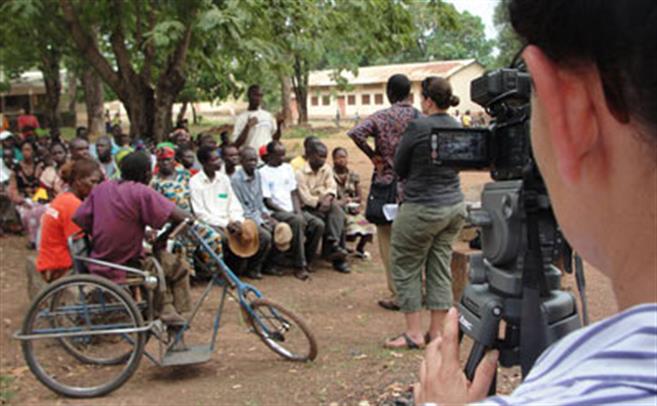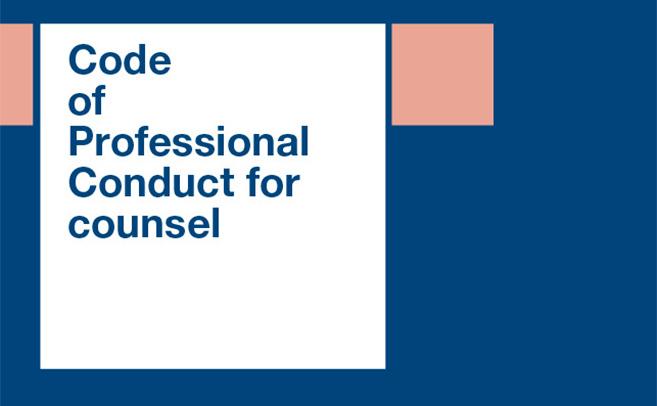Judges, prosecutors, bar associations, and other legal professionals are natural partners for the Court and play a critical role in providing accurate information about the Court’s mandate and activities and galvanising interest in the Court’s work. These partners can influence decision-makers and public opinion, advance Rome Statute implementation and contribute to the development of international criminal law.

Apply to work as Court staff
As a judicial institution, the Court welcomes you to apply to ICC staff positions and contribute your legal expertise to the organisation. Whether you are interested in working in the Presidency, Judicial Divisions, Office of the Prosecutor, or the Registry, you can find opportunities to contribute your legal expertise to the ICC here.
Apply to practice before the Court (as non-staff)
To qualify to practice before the Court, lawyers must apply to be on the:
This List has been created and maintained by the Registry pursuant to Rule 21(2) of the Rules of Procedure and Evidence. Please note that the List furnished to the end-users contains much more information and detail than the publically available version. Or
- List of Counsel
- List of Assistants to Counsel
- This List has been created and maintained by the Registry pursuant to Regulation 125(1) of the Regulations of the Registry.
Those on the List of Counsel may practice before the Court as Defence counsel, Legal Representatives for victims, Duty counsel, or Ad hoc counsel. Counsel on the List are also subject to the Code of Professional Conduct for counsel (Resolution ICC-ASP/4/Res.1).
Join the hundreds of legal professionals on these Lists by applying today.
List of Counsel
Who should apply?
Those with:
- Established competence in international or criminal law and procedure,
- The necessary relevant experience in criminal proceedings, whether as a judge, prosecutor, advocate, or in another similar capacity. This experience must amount to at least ten: (10) years for Lead Counsel and eight (8) years for Associate counsel,
- Excellent knowledge of and fluency in at least one of the working languages of the Court (English or French),
- No convictions for serious criminal or disciplinary offences considered to be incompatible with the nature of the office of counsel before the Court.
See Rule 22 of the Rules of Procedure and Evidence and Regulation 67 of the Regulations of the Court.
List of Assistants to Counsel
Who should apply?
Those having:
- Either five (5) years relevant experience in criminal proceedings, or
- Specific competence in international or criminal law and procedure.
How to apply
Step 1: Read the ICC Guide for applicants
Step 2 (List of counsel): Gather the required application materials:
- Your Application Form - List of counsel, duly dated and signed by you
- ICC's Certificate of good standing - List of counsel, duly complete in all its parts
- Original or certified copy of your registration as a legal professional with governing body
- Certificate issued by the relevant authority of each State of which you are a national or where you are domiciled stating the existence, if any, of criminal convictions
- Detailed curriculum vitae, allowing for appraisal of your competence and experience
- Valid copy of your professional insurance policy
- Legible copy of your birth certificate
- Legible copy of your passport/travel document
- Two passport size photographs
Step 2 (List of Assistants to Counsel): Gather the required application materials:
- Your Application form - List of Assistants to Counsel, duly dated and signed by you
- Detailed curriculum vitae, allowing for appraisal of your competence or experience
- Certificate issued by the relevant authority of each State of which you are a national or where you are domiciled stating the existence, if any, of criminal convictions
- Legible copy of your birth certificate
- Legible copy of your passport / travel document
- Two passport size photographs
- Original or certified copy of the certificate issued by the bar association, professional, association and/or the controlling administrative authority with which you are registered.
- An official letter issued by the institution where you are acting as an adjunct, part-time, or fulltime professor, certifying your tenure and specialty as an instructor, if applicable
- ICC's Certificate of good standing - List of Assistants to Counsel, duly complete in all its parts, if applicable
Step 3: Submit your application to:
Registry of the International Criminal Court
Counsel Support Section
(Ref: List of Counsel, List of Assistants to Counsel, or List of Professional Investigators, as applicable)
PO Box 19519
2500 CM The Hague The Netherlands
Incomplete applications cannot be considered.
Note: The Court specifically encourages and welcomes applications from female candidates, as well as from candidates practicing in countries in which a situation has been brought before the Court.
International Criminal Court Bar Association
The International Criminal Court Bar Association (ICCBA) is an independent, professional association representing the interests of Counsel and legal Support Staff who represent victims, defendants and other actors (such as witnesses) before the ICC. The ICCBA serves as a collective voice for its membership, and provides them a range of support and services, as well as acting as a forum for discussion on all matters pertaining to the Court. The ICCBA's operations are primarily funded by the subscriptions paid by its members, and it is governed by an elected President (currently Marie-Hélène Proulx) and Executive Council, with eight elected standing committees responsible for specific issues and activities.
Information and resources for counsel

Representing Victims before the ICC, A Manual for legal representatives
A Manual for Legal Representatives aiming at providing some guidance on the main issues related to victims’ participation in the proceedings and therefore helping legal representatives in their daily work, representing the views and concerns of victims in the proceedings.
- Fifth Edition - revised (January 2021): English, Français, Español
- Fifth Edition - revised (January 2020): English
- Fifth Edition (April 2019): English
- Fourth Edition (December 2014): English, Français
- Third Edition (December 2013): English, Français
- Second Edition (December 2012): English, Français, Español

Annual Seminar and Training of Counsel
The annual Seminar and Training of Counsel provides a unique platform to not only celebrate the contribution of counsel to the Court's mandate, but to also engage in mutually beneficial dialogue with the legal profession.
The participants come from all over the world including lawyers from the List of Counsel and experts from inter alia, international tribunals, as well as representatives of legal associations and other external partners.
In 2014, the annual Seminar was held for the first time in a location other than The Hague, to bring the Court closer to the people with whom the Court is mandated to work. The Seminar is followed by intense training on ICC law and practice.

Advisory Committee on Legal Texts
The Advisory Committee considers and reports on proposals for amendments to the Rules of Procedure and Evidence, Elements of Crimes and Regulations of the Court. The composition and duties of the Committee are further listed in Regulation 4 of the Regulations of the Court.
Every three years, one representative from the List of Counsel is elected by the members of that List to sit on this Advisory Committee. That representative may be re-elected only once.
Current Counsel representative:
January 2019 – Present: Mr Gregory Townsend
Previous Counsel representative:
October 2015 - October 2018 - Mr Yaré Fall
June 2012 - October 2015 - Mr Thomas Charles Viles
June 2007 – June 2012: Mr Kenneth Gallant (two terms)
Disciplinary Organs for counsel
ICC Disciplinary Organs for counsel were created to establish the truth regarding complaints of alleged professional misconduct by counsel. The organs comprise: a Disciplinary Commissioner, a Disciplinary Board, and a Disciplinary Appeals Board. See Code of Professional Conduct for counsel (ICC-ASP/4/32) (Chapter 4, articles 33(1), 36, and 44).
